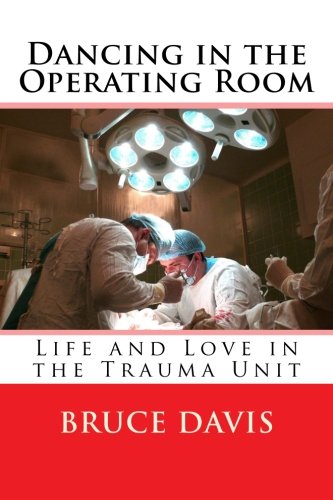I was not having a good morning. I had just come off Trauma call—a difficult 24hr shift that was finally behind me. I had finished a long week of rounding on the Trauma Service and had turned the patients over to Sid, who would be the rounding Doc for the coming week. All I really wanted to do was to go home and sleep. Instead, I was in the operating room struggling through a laparoscopic cholecystectomy on a hot gallbladder.
The night had been particularly difficult because we’d had two deaths during the shift, both young people in a rollover car crash up on the Beeline Highway. One was dead at the scene, but the medics had transported her anyway, doing CPR all the way because she was just sixteen and had no external signs of injury. The x-ray we did in the trauma bay told why. She’d suffered an atlanto-axial dislocation. Her neck had been stretched or distracted during the accident, separating her head from the first cervical vertebra – essentially an internal decapitation. Immediately fatal most of the time.
The other patient, an 18-year-old boy was alive when he arrived but lost his vitals within a few minutes. We worked on him for almost an hour, but never even got him stable enough to go to the operating room.
“…the Dance, that relationship between a surgeon and an assistant that keeps an operation flowing smoothly.”
I had to talk to two families and tell them that their children were dead. I don’t do that conversation well. One of my friends, herself a trauma surgeon, seems to know just what to say to families in these situations. She is quiet and calm, but her compassion and empathy for the loved ones of the patient comes through clearly. I have no words of comfort to give, no particular way to ease that blow. I tend to be very matter of fact and clinical when giving that kind of news and I’m sure I come across as cold and unfeeling. It leaves me feeling both inadequate and guilty for not being able to do more.
So, I was in a foul mood when I started the gall bladder surgery. The procedure was more difficult than expected. The gallbladder was thickened and inflamed and the anatomy wasn’t clear. I struggled and sweated and swore for almost an hour before I could identify the critical structures and safely get the gallbladder out.
I’ve written before about the Dance, that relationship between a surgeon and an assistant that keeps an operation flowing smoothly. I was definitely a half step off that morning. Michele, my wife, has been my first assistant for over twenty years. We usually dance well together in the operating room. She did her best to keep up, but in the end, the operation was more of a slog through mud than a smooth dance.
I was not happy with my performance and it sharpened the feeling of incompetence brought on by the previous night’s events. At one point in the surgery I even shouted at the circulating nurse to ‘turn off the damn music’ so I could relay instructions to Michele and our surgical tech. We usually play music in the OR during a case. The hospital computer can pull Pandora and by unspoken agreement the circulator picks the music unless someone else strongly objects. That morning it was Motown. I don’t mind Motown, but it isn’t my favorite and that morning it got on my nerves.
I finished the case and left Michele to close the small laparoscopic incisions. I stripped off my gown and gloves and as I left the room, I heard the volume crank up on the radio, blasting Diana Ross and the Supremes as the door closed behind me.
By the time I reached the OR control desk, I was calmer. I noticed several techs standing around the desk watching one of the monitors that let the charge nurse observe what was happening in the operating rooms. I looked up to see my wife and LaVera, the scrub tech, dancing to the music of ‘Stop In The Name Of Love’, including all of the Supremes’ signature moves. I smiled for the first time that morning.

Like What You’re Reading?!
Get Dr. Davis’s new book, Dancing in the Operating Room, a collection of these and other short essays about life and love in the world of surgery and medicine, now available from Amazon in print or as an e-book. Check it out!




 Bruce Davis
Bruce Davis